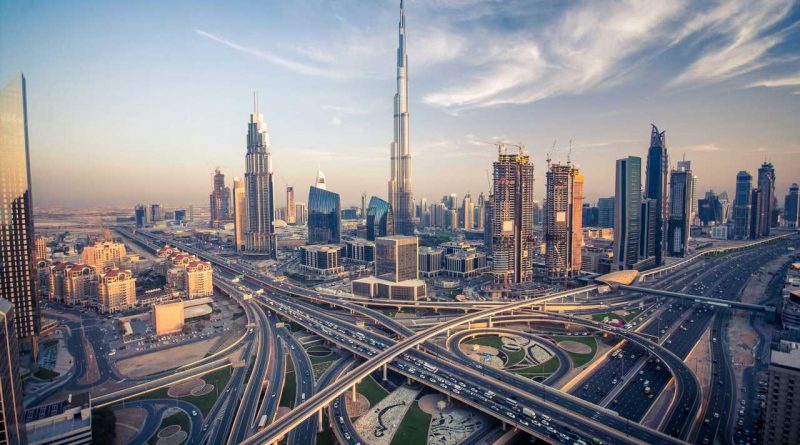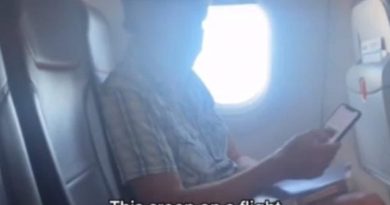Dubai lifts all hotel capacity limits, and Americans can go
Each year, more than 21 million travelers visit the seven emirates comprising the United Arab Emirates. Dubai, the most populous of the seven, singlehandedly accounts for more than 16 million of those visitors. In 2020, however, those numbers dropped drastically after the UAE suspended most commercial passenger flights in order to stem the spread of the coronavirus pandemic.
Dubai reopened to international visitors in July 2020, with Abu Dhabi following suit in December. Although the United States isn’t yet on the UAE’s list of approved “green” low-risk countries, Americans can enter the country with stipulations.
As of May 17, 2021, Dubai has also lifted its limited-capacity rules for hotels, meaning they can be booked to 100%. Public gatherings, such as concerts and sporting events, can also take place at up to 70% capacity for vaccinated people. Mask-wearing and social distancing are still required.
Here’s what you need to know if you’re planning a visit Abu Dhabi or Dubai this summer.
Sign up for TPG’s daily newsletter.
In This Post
Entering the UAE
The UAE began reopening its borders to international visitors in July 2020, after a three-month hiatus, but there are still restrictions in place, which vary by the emirate you’re visiting.
All non-resident visitors — whether vaccinated or not — must show proof of a negative PCR test result returned no more than 96 hours prior to their arrival. All travelers are subject to additional testing requirements, screenings and potential mandatory quarantines, depending on country of origin and vaccination status. The U.S. is currently not on the UAE’s list of approved “green” countries.)
The safe list, as of April 25, includes Australia, Bhutan, Brunei, China, Cuba, Greenland, Hong Kong, Iceland, Israel, Japan, Mauritius, Morocco, New Zealand, Portugal, Russia, Saudi Arabia, Singapore, South Korea, Switzerland, Taiwan, Tajikistan, Thailand, the United Kingdom and Uzbekistan.
All test results must be presented either in English or Arabic in original, physical form. Digital copies will not be accepted. Travelers with severe and moderate disabilities may be exempted from the test requirement.
If quarantine is required, accommodations are at each traveler’s expense, and visitors are subject to being fitted with GPS tracking bracelets after passing through immigration at UAE airports. Violating home quarantine is punishable by law and can come with fines of more than $13,000.
More specific requirements for Abu Dhabi (which are more strict) and Dubai can be found below.
Related: Getting a test is easier now, but you still aren’t guaranteed a result in time
Abu Dhabi
In addition to negative PCR test results that must be shown at the airport, new rules, which went into effect on May 3, require all U.S. citizens, ages 2 and older, to quarantine for 10 days upon entering via Abu Dhabi International Airport (AUH). They must then submit to mandatory PCR testing on days six and 12.
According to the U.S. Embassy website, Americans who enter Abu Dhabi by road via another emirate must present proof that they are COVID-free, dated within the past 48 hours of travel time. Non-Abu Dhabi residents who stay for four or more consecutive days must take an additional COVID-19 PCR test on the fourth day. Those staying more than eight consecutive days must also retest on the eighth day.
Citizens and residents of Abu Dhabi face less stringent testing and quarantine requirements, as do those traveling to the emirate from a “green” country.
Dubai
The National Emergency Crisis and Disasters Management Authority of the UAE (NCEMA), as well as the official website of the UAE, has stated that non-residents entering the UAE from another country must undergo a self-quarantine of 10 days.
However, travelers visiting Dubai can avoid a 10-day quarantine by showing negative PCR test results at the airport.
Visitors must also Download the COVID-19 DXB app onto their phones for monitoring and complete the acknowledgment form to submit to officials upon arrival in Dubai.
Advisor Salem Al Zaabi, Acting Chief of Prosecution of the Emergency Crisis and Disasters Committee, at the General Prosecution, has announced an update to the list of violations and fines, based on Decision No (38) of 2020, and its amendments, to curb the spread of Covid-19. pic.twitter.com/ypovHEEHqZ
— مكتب أبوظبي الإعلامي (@admediaoffice) May 18, 2020
Upon arrival, another PCR test can still be administered at the discretion of local officials, even if all of the criteria above are met. Tested travelers must quarantine until they receive results, and passengers who test positive must undergo mandatory quarantine for a minimum of 10 days at a hotel or self-isolated private address, with successful follow-up test results before quarantine is complete.
After you complete your quarantine, you must continue to comply with all preventative measures from the UAE health authorities.
Related: K9 sniffer dogs may screen you for signs of coronavirus in the UAE
Masks and gloves are required in public spaces, and everyone must practice appropriate social distancing in public areas. People who violate preventative measures can be fined more than $27,000 for the most severe infractions.
Dubai’s Supreme Committee of Crisis and Disaster Management announces updated precautionary measures for events and activities. pic.twitter.com/XcUu0OpJbT
— Dubai Media Office (@DXBMediaOffice) May 17, 2021
Dubai’s revised capacity rules
On May 17, Dubai’s Supreme Committee of Crisis and Disaster Management tweeted new capacity rules for events. Under the loosened mandates, concerts and sporting events can resume if everyone attending has been vaccinated. Caps are set at 1,500 people for indoor events and 2,500 for those happening outdoors.
Additionally, hotels are now allowed to operate at 100% capacity, and entertainment venues are permitted to allow 70% of their maximum. Weddings are also able to resume with a maximum capacity of 100 at designated venues or 30 at home.
Meanwhile, restaurant tables can seat up to 10, while cafes will be allowed to accommodate six. Mask-wearing and social distancing of 6 feet are still required.
Additional reporting by Ashley Kosciolek.
Featured photo by Shutterstock.
Video: Stricter virus lockdown imposed in India’s Bangalore (AFP)
WHO labels Covid mutation in India 'variant of concern'
AFP
Saving Malaysia's bees, one swarm at a time
AFP
Indonesia: Mount Sinabung spews hot ash and smoke into the sky
AFP
EU leaders arrive for social summit in Porto
AFP
EU leaders arrive for social summit in Porto
AFP
EU leaders arrive for social summit in Porto
AFP
London Mayor Sadiq Khan makes election day appearance at polling station
AFP
Scotland votes as independence debate heats up
AFP
London Mayor Sadiq Khan makes election day appearance at polling station
AFP
Eighth day of anti-government protests begins in Colombian capital
AFP
Large crowds have been marching for days in Colombia to protest policies of President Ivan Duque
AFP
In Colombia, tightrope walkers join anti-government protests
AFP
Eighth day of anti-government protests begins in Colombian capital
AFP
Spain's Podemos leader Pablo Iglesias resigns from politics after his hard-left party and the Socialists, who serve together in government, suffered a stinging defeat at the hands of the right in Madrid's regional elections.
AFP
Spain's Podemos leader Pablo Iglesias resigns from politics after his hard-left party and the Socialists, who serve together in government, suffered a stinging defeat at the hands of the right in Madrid's regional elections.
AFP
US ready to vaccinate adolescents after health authorities give OK: Biden
AFP
WHO labels Covid mutation in India 'variant of concern'
WHO labels Covid mutation in India 'variant of concern'
AFP
Saving Malaysia's bees, one swarm at a time
Saving Malaysia's bees, one swarm at a time
AFP
Indonesia: Mount Sinabung spews hot ash and smoke into the sky
Indonesia: Mount Sinabung spews hot ash and smoke into the sky
AFP
SPONSORED: With states reopening, enjoying a meal from a restaurant no longer just means curbside pickup.
And when you do spend on dining, you should use a credit card that will maximize your rewards and potentially even score special discounts. Thanks to temporary card bonuses and changes due to coronavirus, you may even be able to score a meal at your favorite restaurant for free.
These are the best credit cards for dining out, taking out, and ordering in to maximize every meal purchase.
—
Editorial Disclaimer: Opinions expressed here are the author’s alone, not those of any bank, credit card issuer, airlines or hotel chain, and have not been reviewed, approved or otherwise endorsed by any of these entities.
Source: Read Full Article




















